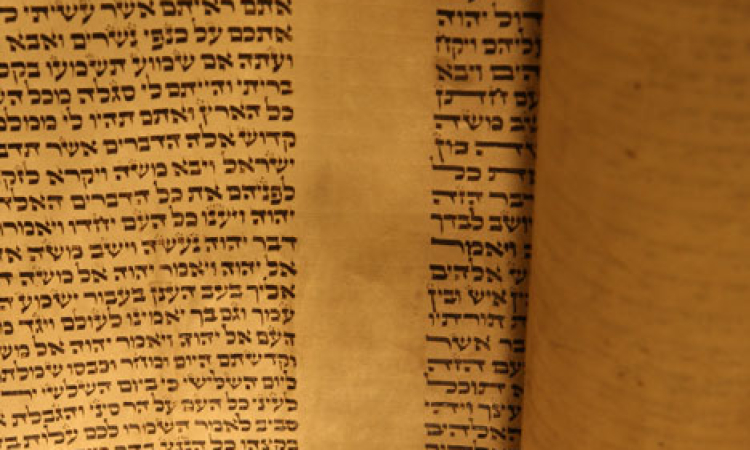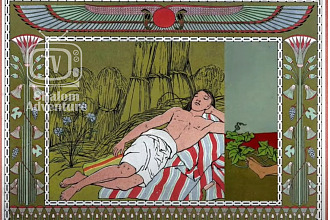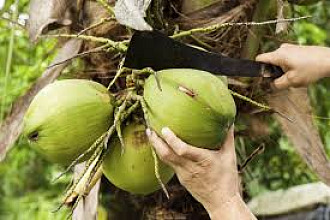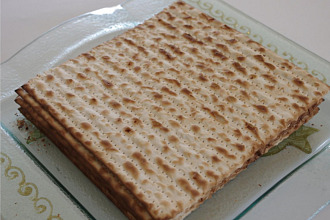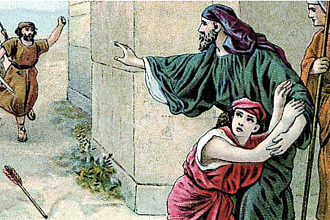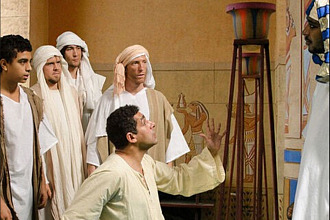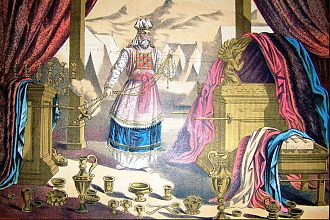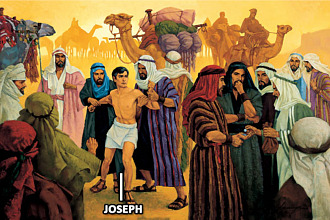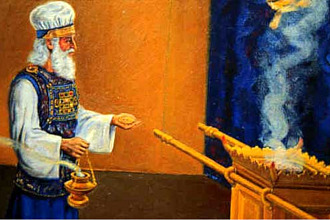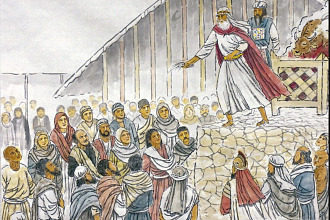Parasha for the Week: Metzora: Leviticus 14:1 – 15:33
Aftarah for the Week: 2 Kings 7:3 – 20
Besorat Yeshua: Mark 1:29 - 45
Overview
The Torah describes the procedure for a person afflicted leprosy after his isolation.
This process lasts a week and involves korbanot (sacrifices) and immersions in the mikveh.
Then, a kohen must pronounce the person pure.
Someone of limited means may substitute lesser offerings for a more expensive animal.
Before a kohen diagnoses that a house has tzara'at (mold), household possessions are removed to prevent them from also being declared ritually impure.
The tzara'at is removed by smashing and rebuilding that section of the house. If it reappears, the entire building must be razed.
The Torah details the bodily secretions that make a person impure, thereby preventing his contact with holy items, and the Torah defines how one regains a state of ritual purity.
"Speech Transgressions"
There are two types of speech transgressions: 1) Lashon Hara (literally "evil tongue")-- making a derogatory or damaging statement about someone even though you are speaking the truth. 2) Rechilus (literally "tale bearing") -- telling someone the negative things another person said about him or did against him.
"Gossip and Slander"
Rabbi Zalmen Marozov says that the holiday of Pesach, when we are prohibited to eat or even posses chametz (leaven), teaches us an interesting lesson. Both matzah bread and chametz are made from the same ingredients - flour and water - yet matzah is flat, while bread rises. The Pesach matzah teaches a person the importance of humility and the prohibition of haughtiness. Our sages have often emphasized the need for a person to be very careful when speaking about others. The importance of refraining from speaking about others can also be seen from the commandment of the Torah "Remember what the L-rd your G-d did unto Miriam on the way, as you came out of Egypt" (Deut. 24:9). The Torah refers to a discussion that Miriam had with her brother Aaron. In the course of the discussion, Miriam spoke negatively about her brother Moshe. As a result, she became leprous (tzara'at). The Torah commands us to continuously remember this episode so that we too should refrain from speaking negative about others.
Our sages compare the damage inflicted through Lashon Hara to a person shooting an arrow at someone else. As soon as the arrow leaves, the person who shot it looses control over it.
Similarly, as soon as a person utters negative words about others, he lost control over them and there is no telling how far they may travel and how much damage they may inflict. Once they have been "aired", there is no taking them back even if he regrets his action.
Haftara: 2 Kings 7:3 - 20
Parasha: In the text of the parasha we have the description of "tzara'at". ll the symptom of this sickness look like leprosy and the Jewish tradition has linked this parasha to the Haftara of 2 Kings where it is about four leprous men.
Haftara: Syria had laid siege against Israel. There were four leprous men outside the city gate, who said to one another, "Why should we sit here until we die? If we say, 'Let us enter the city,' the famine is in the city, and we shall die there; but if we sit here, we shall also die. Therefore, let us desert to the Syrian camp; if they spare our lives, we shall live; and if they kill us, we shall but die." (2Kings 7:3-4). The Lord had caused the Syrian army to hear the sound of chariots, and of horses, the sound of a great army, so that they said to one another, "The king of Israel has hired the kings of the Hittites and the kings of Egypt to fight against us." So they fled away in the twilight and abandoned their tents, their horses, and their donkeys leaving the camp just as it was, and fled for their lives. (2Kings 7:6-7) As the four lepers entered the Syrian camp they were shocked to find it empty. After eating and drinking in the tents of their enemies they felt selfish for enjoying the plunder by themselves while their brothers and sisters were starving in the city under the siege. They decided to tell the king of Israel what happened. Israel was saved. It is a great lesson for us, how many time we have some prejudices against some people, thinking that in their condition they can not be blessed or even be a blessing for anyone. But the Lord is able to use anyone who manifests an unselfish heart.
Besorat Yeshua: Luke 17:11-19
Parasha: The texts of the parasha and of the Haftara are about leprosy. Leprosy is a special sickness, which make people unclean and isolated from the rest of the world. This sickness was considered as contagious and the people who were touched by leprosy had to cry in the streets "UNCLEAN, UNCLEAN" (Lev. 13:45) in order not to be in contact with anyone and not to contaminate them. However, the Bible gives hope to the leprosies, they can be healed. Leviticus 14 explains all the process to be cleansed from leprosy.
Besorah: in the Besorah we have texts where Yeshua was in contact with leprous people, he always helped them to be cleansed. Once, "as He went to Jerusalem He passed through the midst of Samaria and Galilee. Then as He entered a certain village, there met Him ten men who were lepers, who stood afar off. And they lifted up their voices and said, "Y'shua, Master, have mercy on us!" So when He saw them, He said to them, "Go, show yourselves to the priests." And so it was that as they went, they were cleansed. And one of them, when he saw that he was healed, returned, and with a loud voice glorified God, and fell down on his face at His feet, giving Him thanks. And he was a Samaritan. So Y'shua answered and said, "Were there not ten cleansed? But where are the nine? Were there not any found who returned to give glory to God except this foreigner?" And He said to him, "Arise, go your way. Your faith has made you well." How important it is for us to remember to give thanks. Instead of being like Miriam and speaking Lashon Hara (evil talk, slander, gossip, negativity, etc), or like the nine ungrateful healed leapers who held their tongue, we should be like the healed man who gave thanks. We should use our lips in giving thanks and praise to God.

